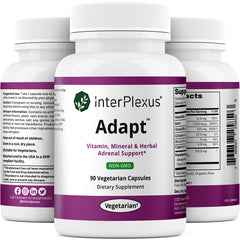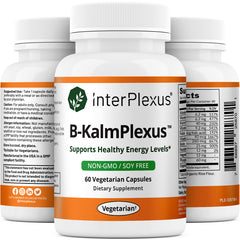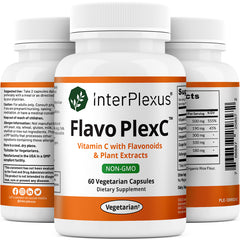
Want to take your athletic performance to the next level without working out harder or longer? There is an herb for that!
There’s also a term for substances that boost performance capacity and efficiency, the ability to recover from exercise, and the quality of training – an ergogenic aid.1 Ashwagandha is neither a “fad” nor snake oil; the gold-standard evidence continues to accumulate in its favor as a highly effective adaptogenic herb and ergogenic aid.
Adaptogenic herbs improve your ability to adapt to change and cope with stress - physically, emotionally, and mentally. The latest definition of an adaptogen is “a class of metabolic regulators that enhances the body’s ability to adapt to environmental factors and avoid the damage they could imply.” Thus, by definition, adaptogenic herbs reduce the negative impacts of stress, including exercise – physical stress.2

What is Ashwagandha (Withania somnifera)?
Ashwagandha is an adaptogenic herb and ergogenic aid safely prescribed in traditional systems of medicine for thousands of years. The part of the plant that is most commonly prescribed and beneficial is the root, which is why the best supplements contain Ashwagandha root extract.1
An abundance of evidence suggests Ashwagandha offers cardioprotective (heart-supportive), anticancer, antioxidant, antibacterial, antifungal, anti-inflammatory, hepatoprotective (liver-supportive), anti-depressant, and hypoglycemic (blood sugar-lowering) benefits. Human clinical trials suggest Ashwagandha offers supportive benefits for infertility, obsessive-compulsive disorder, anxiety, bone and muscle strengthening, high cholesterol levels, diabetes, and more.3

Research Studies Suggest Ashwagandha (Withania Somnifera) Reliably Boosts Physical Performance
A comprehensive systematic review and meta-analysis published in 2021 included thirteen placebo-controlled clinical trials conducted from 2010 to 2020. The data sets from 615 healthy adults were analyzed. The analysis confirmed that Ashwagandha supplementation is more effective than a placebo for improving physical performance in healthy adults.4
According to the clinical studies analyzed, 120 mg to 1250 mg of Ashwagandha root extract daily enhances physical performance. Higher doses are preferred for trained individuals and athletes. The authors stated that 300–500 mg twice daily might be a beneficial supplementation protocol for trained women and men undergoing strenuous resistance or endurance training. Lower doses, less than 300 mg daily, could be sufficient for non-physically active individuals.4
Overall, the evidence suggests Ashwagandha supplementation is more effective than placebo for improving many facets of physical performance, including strength and power, cardiorespiratory fitness, and fatigue/recovery in healthy women and men.4

The Effect of Ashwagandha on Cardio-Respiratory Fitness
VO2 max, or maximum oxygen consumption, is an objective measurement that assesses aerobic capacity to determine cardiorespiratory fitness. VO2 max provides insight into an individual’s health status and sports performance. In competitive sports, the VO2 max is one of the primary factors that contribute to success in endurance activities. VO2 max is also a useful measure of general health in those who do not participate in competitive sports.5
A low VO2 max is associated with the loss of independent lifestyle in adults and the elderly and an increased risk of mortality. High VO2 max values, which indicate excellent cardiorespiratory fitness and aerobic capacity, are associated with a reduced risk of cardiovascular diseases. The VO2 max value is affected by many factors, including enzymes, genetic predisposition, training, and muscle fiber type.5
A systematic review and meta-analysis published in 2020 confirmed Ashwagandha supplementation likely improves the VO2 max in both athletic and non-athletic individuals. The doses and duration of Ashwagandha root extract supplementation varied from 2 to 12 weeks and 300 to 1000 mg daily. The authors suggested more research is needed for a definitive conclusion since only four clinical trials were included in the meta-analysis.5
A double-blinded, randomized, placebo-controlled trial published in May of 2021 included 50 healthy athletic adults that supplemented with 300 mg of Ashwagandha root extract twice daily for eight weeks. The VO2 max of the participants that supplemented with Ashwagandha increased significantly compared to the placebo group. The researchers concluded Ashwagandha supplementation does enhance cardiorespiratory fitness in healthy athletic adults.6

The Effects of Ashwagandha on Strength and Power
A clinical study by Wankhede et al. assessed the effects of Ashwagandha root extract supplementation on strength and muscle mass in healthy young men who engaged in resistance training. In this randomized, prospective, double-blinded, placebo-controlled clinical study, 57 male subjects took 300 mg of either starch or Ashwagandha root extract twice daily for eight weeks. The participants were 18-50 years old and had little experience in resistance training at the beginning of the study. Compared to the placebo group, those who supplemented with the Ashwagandha root extract experienced much greater, statistically significant, boosts in muscle size and strength.7
Here are the impressive (and almost unbelievable) numbers:
- Muscle strength on the bench-press exercise - Placebo: 26.4 kg vs. Ashwagandha: 46.0 kg
- Muscle strength on the leg-extension exercise - Placebo: 9.8 kg vs. Ashwagandha: 14.5 kg
- Muscle size increase in the arms - Placebo: 5.3 cm vs. Ashwagandha: 8.6 cm
- Muscle size increase in the chest - Placebo: 1.4 cm vs. Ashwagandha: 3.3 cm (WOW!)7
A randomized, double-blinded, placebo-controlled clinical trial by Ziegenfuss et al. showed that 500 mg of daily Ashwagandha supplementation for 12 weeks led to statistically significant improvements in 7.5 km time trial performance, peak bench press power, average squat power, and perceived recovery scores in recreationally active men.8
So, several studies suggest Ashwagandha supplementation in conjunction with a resistance training program leads to significant increases in muscle mass and strength in men. More research is needed to assess the beneficial effects on women.

The Effect of Ashwagandha on Post-Workout Fatigue and Recovery
Research shows Ashwagandha promotes physical recovery. A clinical study demonstrated one 1000 mg dose of Ashwagandha acutely following muscle-damaging resistance exercise induced increases in the pain threshold, pain tolerance, and peak power of the lower leg muscles, which indicates improved recovery.9
A clinical study published in 2021 assessed post-workout fatigue and recovery. Fifty healthy athletic adults were randomized into an Ashwagandha group, which received 300 mg of Ashwagandha root extract capsules twice daily for eight weeks, and a placebo group. After eight weeks, the Ashwagandha group displayed a statistically significant decrease in their fatigue score in comparison to the placebo group. A statistically significant outcome was also noted for the Ashwagandha group compared to the placebo group for the energy depletion (lack of energy) score and the fitness/injury-related scores.6
Another study showed more rapid recovery from muscle damage with long-term Ashwagandha supplementation compared to placebo. This eight-week study measured serum creatine kinase to assess muscle damage and recovery, and the levels were greatly improved with the Ashwagandha supplementation. The faster recovery could be caused by many different physiologic mechanisms as well as synergistic effects. Mechanisms may include antioxidant, anti-inflammatory, and analgesic effects, plus a reduction in lactic acid and blood urea nitrogen levels.7 Several potential mechanisms of action are discussed below.

What Does Ashwagandha Do?
While the health benefits of Ashwagandha supplementation are clear and supported by gold-standard research, you might wonder what it does in your body. How does Ashwagandha boost physical performance?
More research is needed, but many speculate Ashwagandha boosts physical performance via its’ powerful, anti-inflammatory, hormone-optimizing, antioxidant, mitochondria-boosting, muscle-repairing, and sleep-enhancing properties.2,4
Ashwagandha will not make you sleepy during the day, but when taken daily for several weeks, research shows it improves sleep quality. One clinical study showed that 300 mg of Ashwagandha root twice daily for ten weeks supported the induction of sleep and improved sleep quality in those with insomnia, which could boost the process of adaptation to exercise and accelerate recovery after exercise-induced muscle injury.4,9
Research suggests the secondary metabolites of Ashwagandha could regulate some anti-inflammatory and anti-oxidative pathways to improve physical performance at the metabolic level. Cell and animal studies demonstrate the metabolites induce Nrf2, a transcription factor that regulates the expression of antioxidant enzymes in response to oxidative stress, and several other pathways that play a role in exercise recovery.4

A cell study published in 2021 investigated the effect of Ashwagandha extracts with withanolides, including withaferin A and withanone, on muscle cells. Results showed the Ashwagandha extracts with the highest withaferin A and withanone levels induced the de-aggregation of aggregated proteins, the activation of hypoxia and autophagy pathways, and increased differentiation of myoblasts to myotubes. The results suggest that Ashwagandha-derived withanolides support the management of muscle repair and activity.10
Animal studies suggest supplementation with Ashwagandha promotes improved mitochondrial function in both adipose tissue and skeletal muscle.11,12 While caution is recommended when translating animal research to humans, improved mitochondrial function could be a mechanism by which daily supplementation with Ashwagandha boosts muscle strength, muscle recovery, and overall athletic performance.*
Ashwagandha also optimizes hormone levels. Research shows it boosts DHEA and testosterone production in men while optimizing cortisol production in men and women. Researchers speculate the more pronounced increase in testosterone production in men may explain the sex difference in VO2 max improvements. Studies show supplementation with Ashwagandha leads to better improvement in VO2 max for men than women. In one clinical study, VO2 max increased by 16.1% in men vs. “only” 9.0% in women. Testosterone is known to significantly boost the production of red blood cells, which deliver oxygen to tissues throughout your body, thereby increasing aerobic capacity (VO2 max).4
There are many more mechanisms by which Ashwagandha root extract boosts physical performance, and the research is ongoing.

Meet Your Long-Term Health and Fitness Goals with Ashwagandha Root Extract*
Daily supplementation with Ashwagandha might be the naturally supportive boost you need on your wellness journey to meet your specific fitness and health goals. Ashwagandha can be taken before and or after your workout as long as it is taken daily. Always consult with a healthcare professional before beginning a new supplement routine, especially if you take medications or have underlying health conditions.
InterPlexus Supplements with Organic Ashwagandha Root Extract Powder
Adapt TM is an adrenal support supplement designed to support a healthy and balanced response to stress while boosting muscle and strength gains.*
B-KalmPlexus TM supplement is a vitamin B complex with magnesium, Ashwagandha, and phosphatidylserine that supports a healthy stress response, optimal fitness, and sustained energy levels.*
Thyro-Dyne TM supplement is formulated with iodine, targeted amino acids, and herbal extracts to provide precursors, co-factors, and botanicals to support optimal thyroid hormone production and function to power your workout.*
Flavo-PlexC TM supplement is a potent blend of vitamin C and organic plant extracts, including Ashwagandha, to support optimal adrenal function, muscle strength, and emotional well-being.*
References:
- Shenoy S, Chaskar U, Sandhu JS, Paadhi MM. Effects of eight-week supplementation of Ashwagandha on cardiorespiratory endurance in elite Indian cyclists. J Ayurveda Integr Med. 2012;3(4):209-214. doi:10.4103/0975-9476.104444
- Mikulska P, Malinowska M, Ignacyk M, et al. Ashwagandha (Withania somnifera)-Current Research on the Health-Promoting Activities: A Narrative Review. Pharmaceutics. 2023;15(4):1057. doi:10.3390/pharmaceutics15041057
- Saleem S, Muhammad G, Hussain MA, et al. Withania somnifera: Insights into the phytochemical profile, therapeutic potential, clinical trials, and future prospective. Iran J Basic Med Sci. 2020;23(12):1501-1526. doi:10.22038/IJBMS.2020.44254.10378
- Bonilla DA, Moreno Y, Gho C, et al. Effects of Ashwagandha (Withania somnifera) on Physical Performance: Systematic Review and Bayesian Meta-Analysis. J Funct Morphol Kinesiol. 2021;6(1):20. doi:10.3390/jfmk6010020
- Pérez-Gómez J, Villafaina S, Adsuar JC, et al. Effects of Ashwagandha (Withania somnifera) on VO2max: A Systematic Review and Meta-Analysis. Nutrients. 2020;12(4):1119. doi:10.3390/nu12041119
- Tiwari S, Gupta SK, Pathak AK. A double-blind, randomized, placebo-controlled trial on the effect of Ashwagandha (Withania somnifera) root extract in improving cardiorespiratory endurance and recovery in healthy athletic adults. J Ethnopharmacol. 2021;272:113929. doi:10.1016/j.jep.2021.113929
- Wankhede S, Langade D, Joshi K, et al. Examining the effect of Withania somnifera supplementation on muscle strength and recovery: a randomized controlled trial. J Int Soc Sports Nutr. 2015;12:43. doi:10.1186/s12970-015-0104-9
- Ziegenfuss TN, Kedia AW, Sandrock JE, et al. Effects of an Aqueous Extract of Withania somnifera on Strength Training Adaptations and Recovery: The STAR Trial. Nutrients. 2018;10(11):1807. doi:10.3390/nu10111807
- O'Connor E, Mündel T, Barnes MJ. Nutritional Compounds to Improve Post-Exercise Recovery. Nutrients. 2022;14(23):5069. doi:10.3390/nu14235069
- Wang J, Zhang H, Kaul A, et al. Effect of Ashwagandha Withanolides on Muscle Cell Differentiation. Biomolecules. 2021;11(10):1454. doi:10.3390/biom11101454
- Sood A, Mehrotra A, Dhawan DK, Sandhir R. Indian Ginseng (Withania somnifera) supplementation ameliorates oxidative stress and mitochondrial dysfunctions in experimental model of stroke [published correction appears in Metab Brain Dis. 2023 Aug;38(6):2185-2186]. Metab Brain Dis. 2018;33(4):1261-1274. doi:10.1007/s11011-018-0234-2
- Lee DH, Ahn J, Jang YJ, et al. Withania somnifera Extract Enhances Energy Expenditure via Improving Mitochondrial Function in Adipose Tissue and Skeletal Muscle. Nutrients. 2020;12(2):431. doi:10.3390/nu12020431







Leave a comment